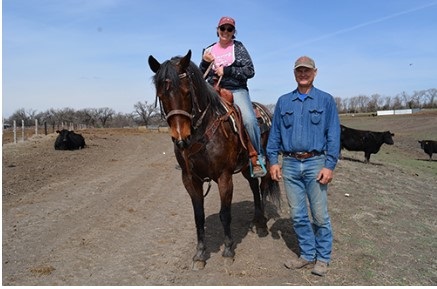WASHINGTON, D.C. – The United States Cattlemen’s Association is all in. The National Cattlemen’s Beef Association says, maybe. For R-CALF USA, it’s not looking good.
It points to the challenge of coming up with federal legislation to address diminishing price transparency in cattle markets, which most everyone agrees on. But how best to correct that is where the dialogue between organizations representing every segment of the supply chain, stops.

Whether the most recent proposed legislation, labled a compromise by it sponsors, will make it across the finish line is hard to say. While some industry leaders are cautiously optimistic about the Cattle Market Price Discovery and Transparency Bill, Bill Bullard, R-CALF USA CEO is taking a ‘wait and see’ approach.
“For nearly seven years, the cattle market has remained structurally and systemically broken,” said Bullard. “Billions of dollars in equity continues to be extracted from independent cattle producers and the rural communities they support, and that equity continues to be transferred to the coffers of both domestic-based and foreign-based multinational companies.
“We continue losing untold numbers of independent cow/calf producers, backgrounders and farmer-feeders.”
Senators Deb Fischer (R-Neb.), Chuck Grassley (R-Iowa), Jon Tester (D-Mont.), and Ron Wyden (D-Ore.) jointly announced the compromise. The final language of the compromise is not yet publicly available.
Bullard said that cattle groups traveled to Washington to ask Congress to halt, “the ongoing destruction of our industry as we know it today. We asked Congress to immediately force the dominant packers to begin competing for cattle and give consumers the opportunity to choose where they want their beef produced.”
The Cattle Price Discovery and Transparency Act would establish regional mandatory minimum thresholds for negotiated cash and grid trades based on each region’s 18-month average negotiated cash trade volumes.
To set those levels of cash and grid trades, USDA would seek public comment and set the minimum levels, though no regional minimum could be more than three times that of the lowest regional minimum, and no regional minimum could be lower than the 18-month average trade at the time the bill is enacted.
“Publicly available information does not indicate the compromise bill does what we asked,” said Bullard. ” Nevertheless, we will carefully review the final language before passing judgement.”
He added, “We will determine if the bill can immediately restore lost competition to the market, if it can immediately ensure timely market access for all participants, if it treats all independent cattle producers and feeders equally, if it is compatible with our goal to write meaningful rules to implement the Packers and Stockyards Act, and if it truly rebalances the disparate market power between disaggregated cattle producers and the highly concentrated beef packers.”












